Best Agile Project Management Tools in 2025
Pick the right Agile project management software for your team.
Agile methodologies have emerged as a powerful approach for tackling complex projects, enabling teams to adapt, collaborate, and deliver results efficiently. However, finding the right Agile project management tool can be a daunting task. Here's the thing: there is no one-size-fits-all solution. The best tool for you depends on several factors like team size, project scope, and specific requirements.
To help you navigate the vast array of available options, we have curated a selection of the top Agile project management tools. Whether you're a seasoned project manager looking to enhance your existing practices or a newcomer to Agile methodologies, this guide will equip you with the knowledge to make an informed decision.
What is Agile project management software?
Agile project management tools help teams effectively plan, execute, and track their projects using the principles and practices of Agile project management. The Agile methodology emphasizes flexibility, collaboration, and iterative development, allowing teams to respond quickly to changes and deliver high-quality results.
One of the key features of Agile project management software is its ability to break down complex projects into smaller, manageable tasks. Teams can create a backlog of work items, which are then prioritized based on their importance and urgency. This allows team members to focus on specific tasks and work in short iterations, known as sprints. The software provides visibility into the progress of each task, enabling team members to track their work and make adjustments as necessary.
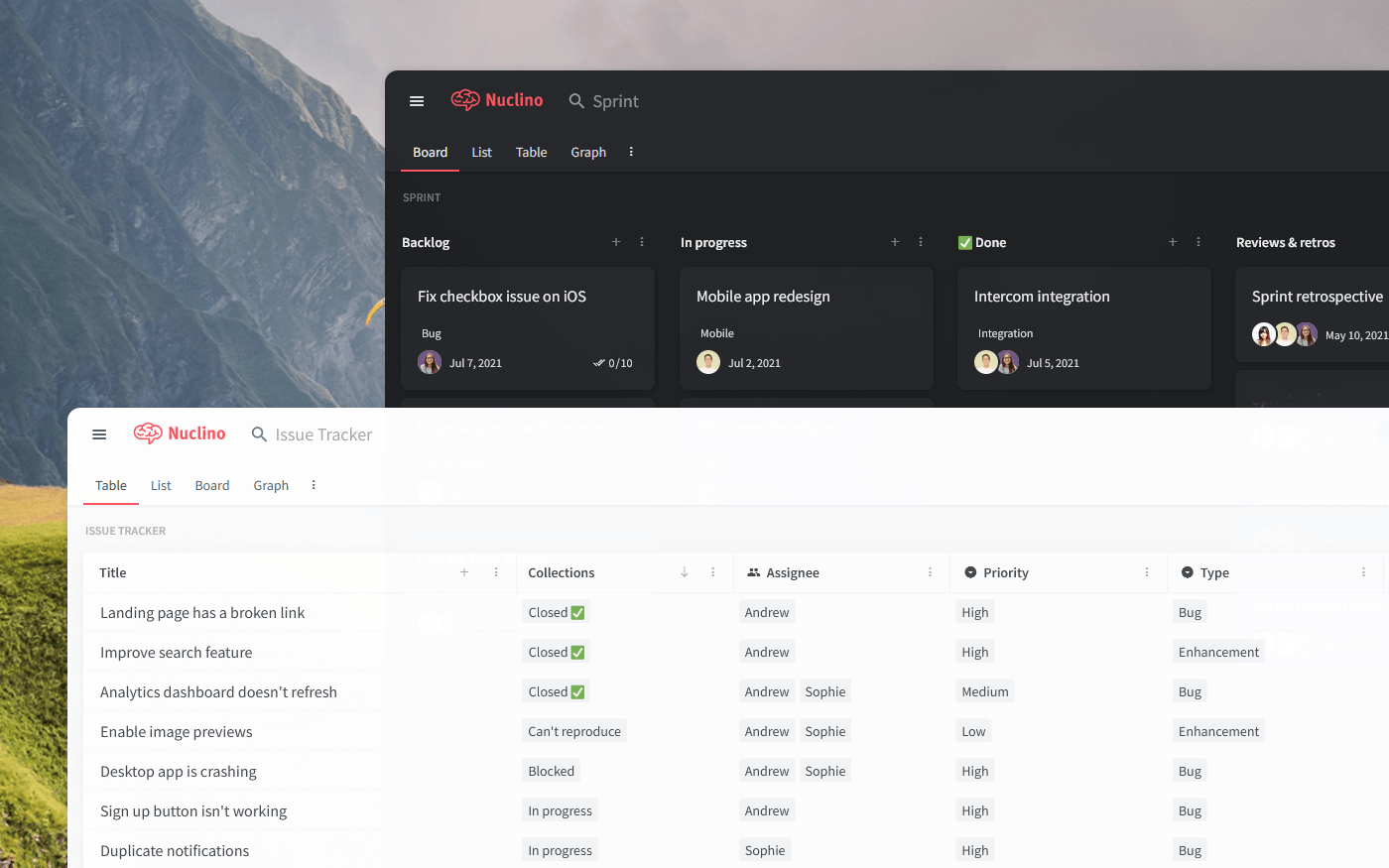
Best Agile project management tools
While there may not be a universally best solution when it comes to Agile project management tools, there are many great options to choose from. Some of them are fairly simple, while others are packed with complex features and customization options. Some are designed for smaller teams, while others are best suited for large enterprises. Some are dedicated Agile project management tools, while others cover many additional use cases.
The best choice ultimately depends on your team's unique workflow and requirements. To make your evaluation process easier, we've put together a list of the best paid and free Agile project management tools, based on real reviews.
1. Nuclino
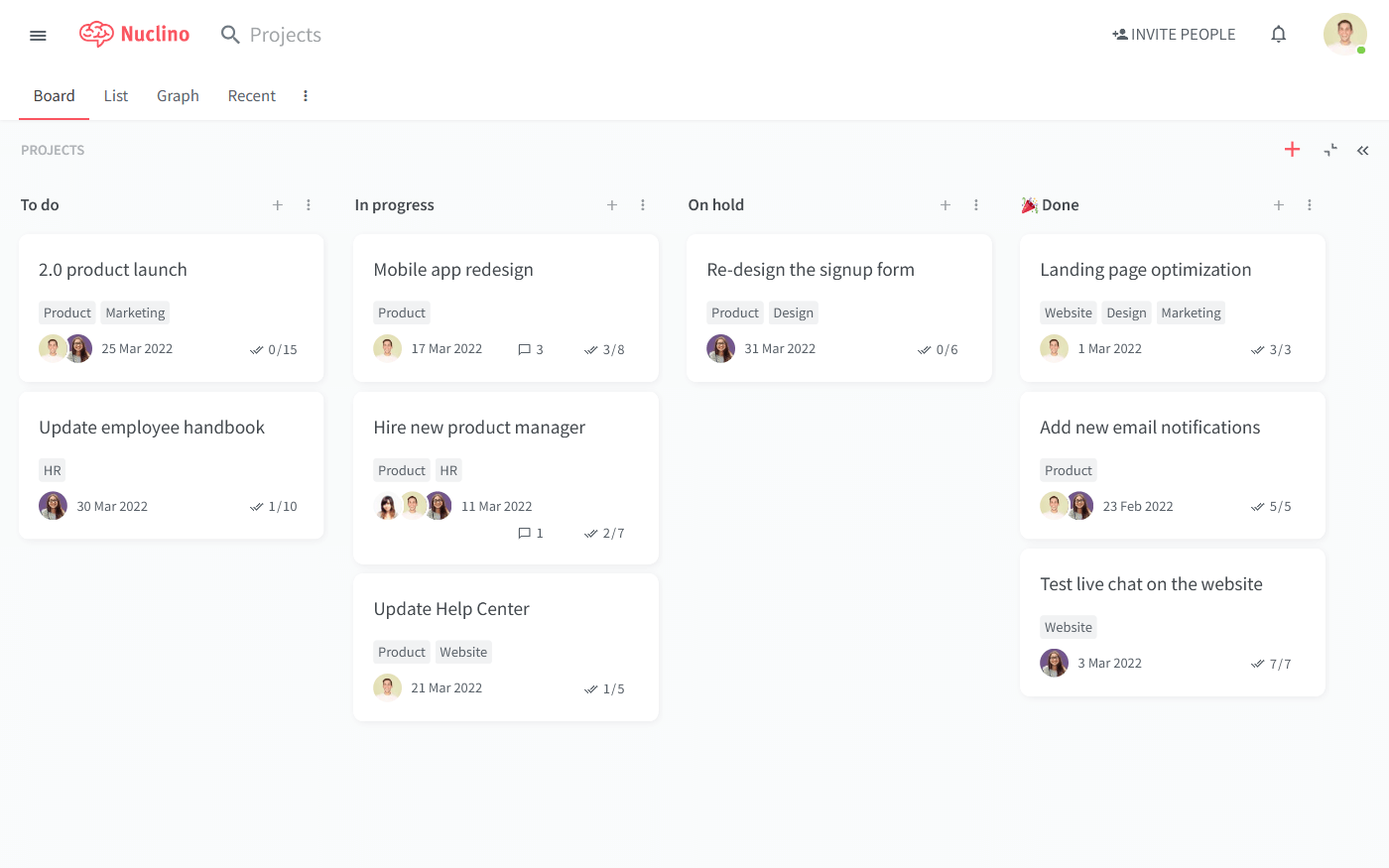
Pricing: Free, advanced features starting from $6/user/month
Rating on Capterra: 4.7/5
Nuclino stands out among other Agile project management tools thanks to its exceptionally lightweight design. Its interface is clean and intuitive, lowering the learning curve and making it easy to get started with the tool and bring your entire team on board.
Yet despite its simplicity, Nuclino offers a range of powerful features. You can create flexible Kanban boards for each project, where you can easily manage user stories, epics, and tasks, allowing for iterative planning and backlog management.
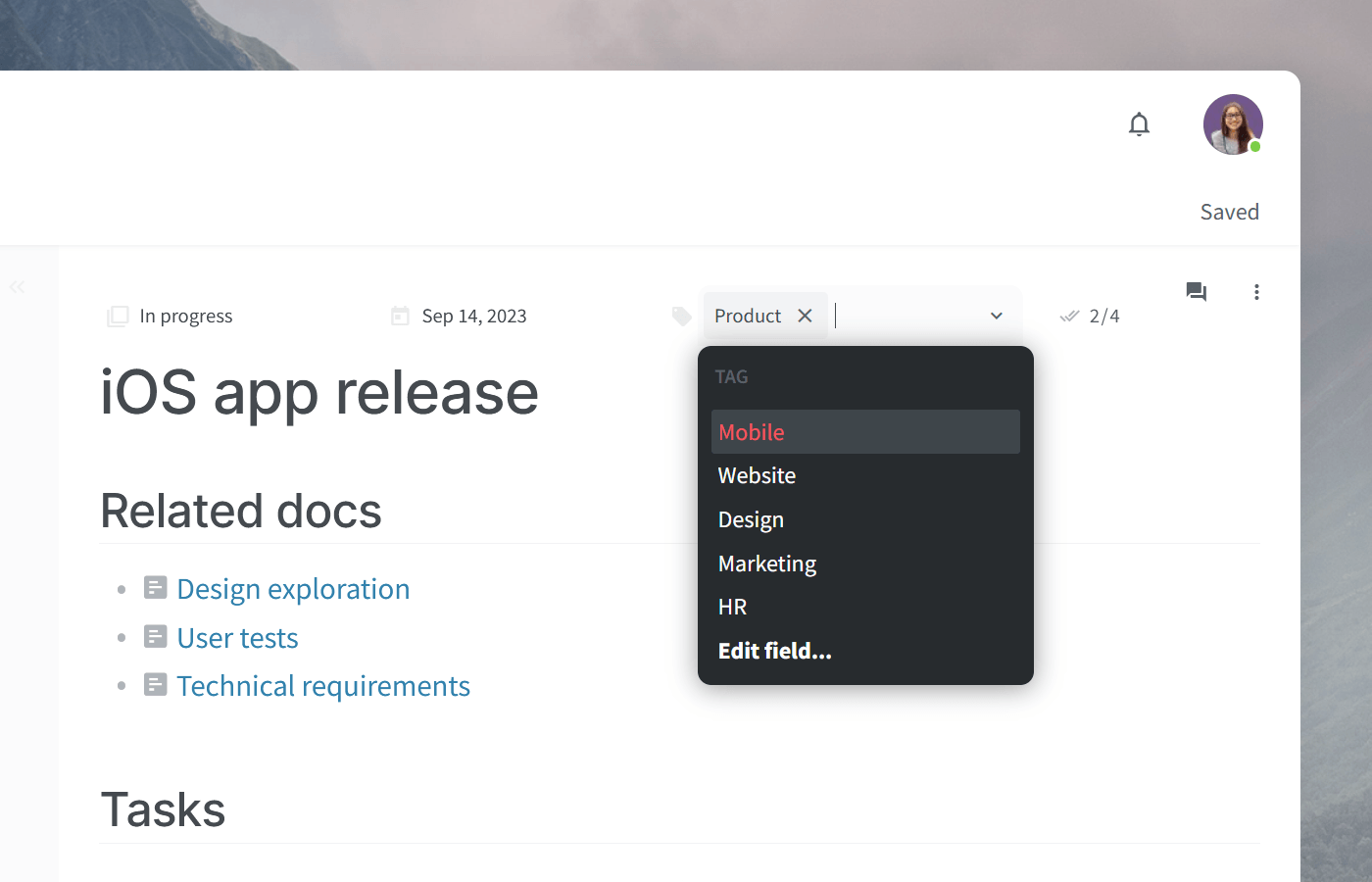
Another distinctive feature of Nuclino is how it brings together structured Agile projects and long-form documentation – it's essentially a project management and document collaboration tool in one. Every card on your Kanban board is its own collaborative document. This allows you to always keep your work in context, documenting sprint goals, user stories, requirements, and retrospectives, creating to-do lists, setting due dates and reminders, embedding files, and more.
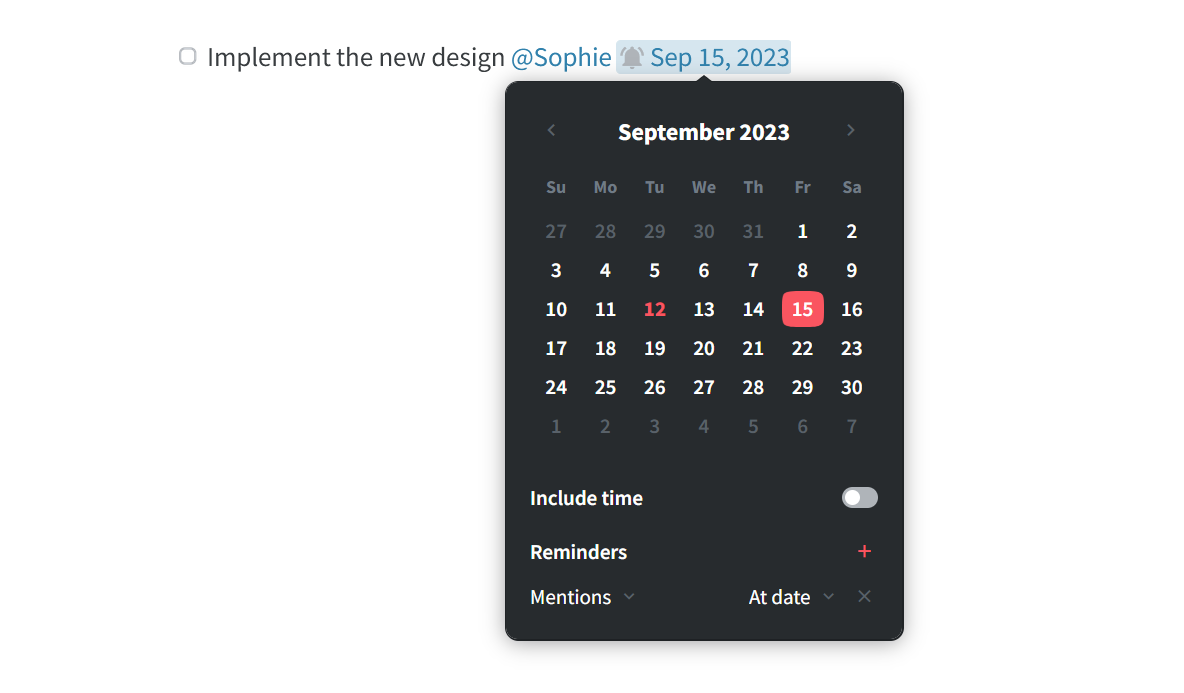
You can exchange feedback directly in Nuclino using comments and mentions, preserving the context of every decision.
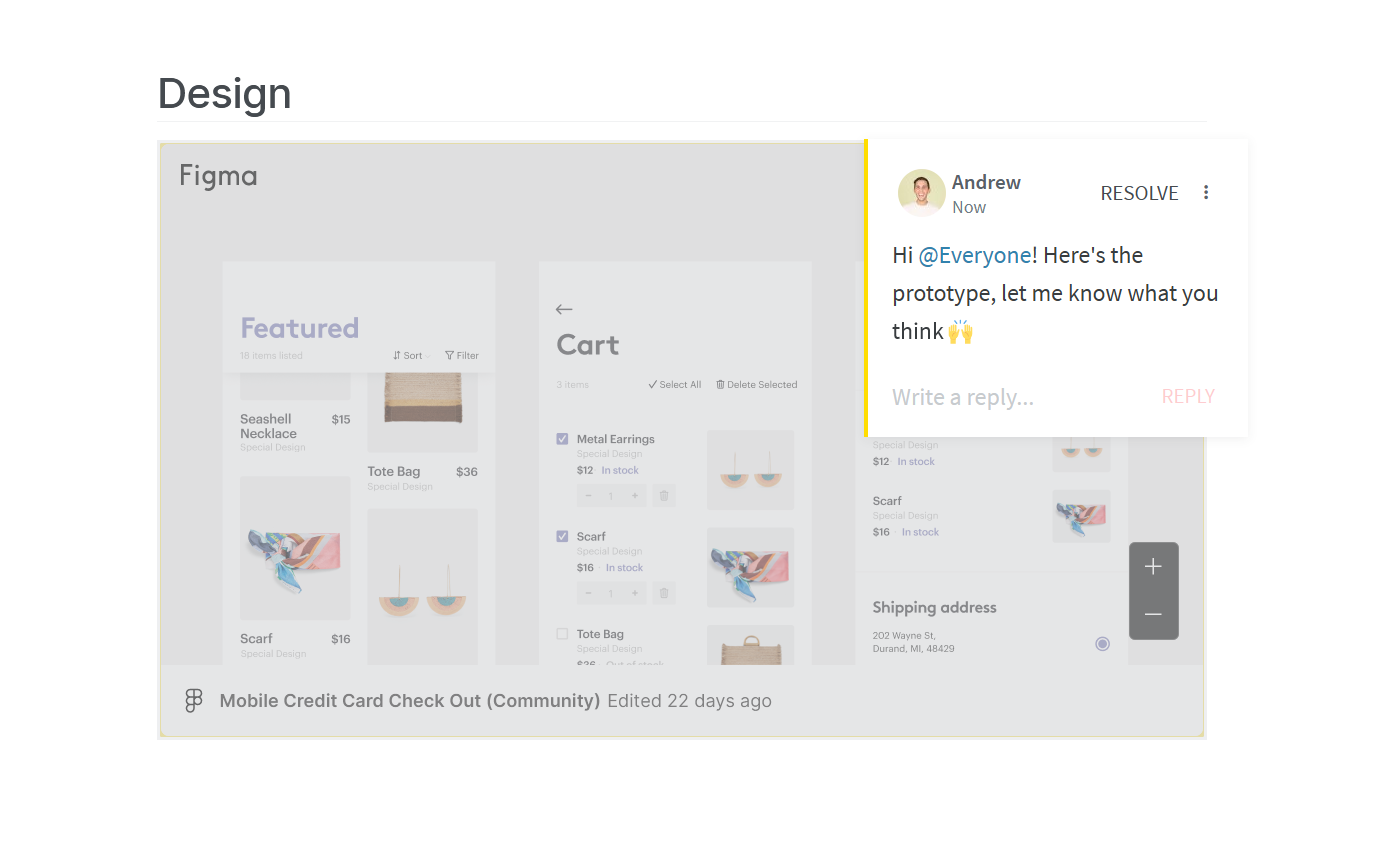
While Nuclino can be used exclusively as an Agile project management tool, it can be much more than that. You can use it to onboard new employees, take meeting minutes, create employee handbooks, build your internal wiki or company intranet, and more. This balance between simplicity and versatility is one of the key selling points of Nuclino.
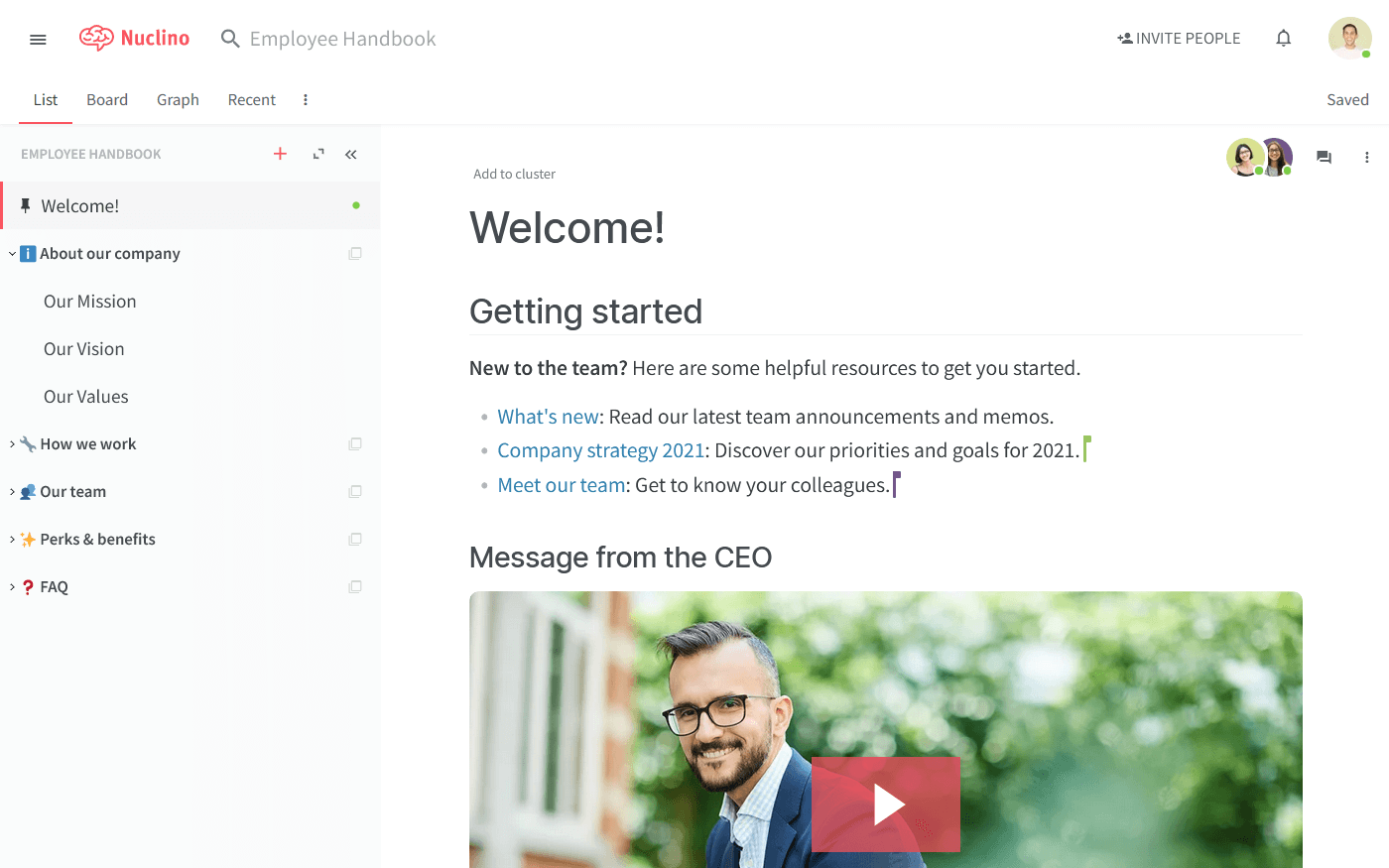
What users say about Nuclino:
"The way Nuclino is built makes the platform very flexible towards the way you work. I use Nuclino to document the projects I work on. It serves as a wiki for the project which helps anyone joining the project at later stages understand what was done during the design process, and why certain decisions were made."
2. Jira
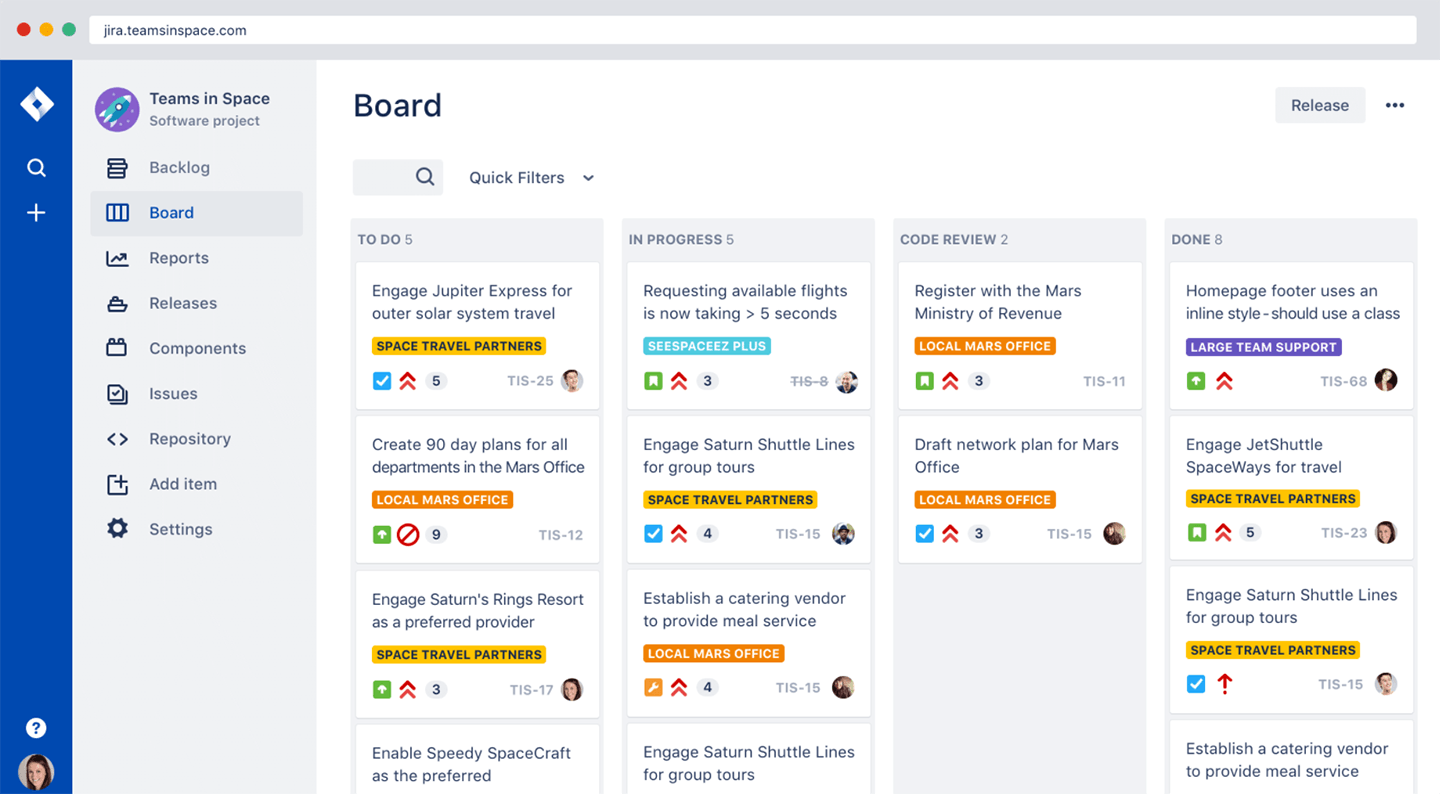
Pricing: Free, advanced features starting from $7.50/user/month
Rating on Capterra: 4.4/5
Jira is a popular Agile project management tool developed by Atlassian. It's built with a focus on Agile methodologies such as Scrum and Kanban. It allows teams to organize work into user stories, epics, sprints, and backlogs, providing a structure that aligns with Agile principles.
Jira offers extensive customization options. Users can define their own workflows, issue types, fields, and screens. Jira also provides powerful reporting capabilities that provide insights into project performance and progress. It generates various Agile-focused metrics like burndown charts, velocity charts, and cumulative flow diagrams, enabling teams to track their work, identify bottlenecks, and make data-driven decisions.
The feature set of Jira exceeds that of most of its competitors, but it's also what makes this tool fairly complex and challenging to adopt.
Looking for more tools similar to Jira? Check out this list of Jira alternatives.
What users say about Jira:
"In my experience, Jira Software is a powerful tool that can be a great asset to teams and organizations, particularly those following Agile methodologies. The tool includes features such as backlog management, sprint planning, and burndown charts. However, it can also be quite complex and overwhelming, especially for teams that are not already familiar with project management best practices. The tool's customization options and reporting capabilities are impressive, but they require significant investment in training and support to use effectively."
3. Azure DevOps
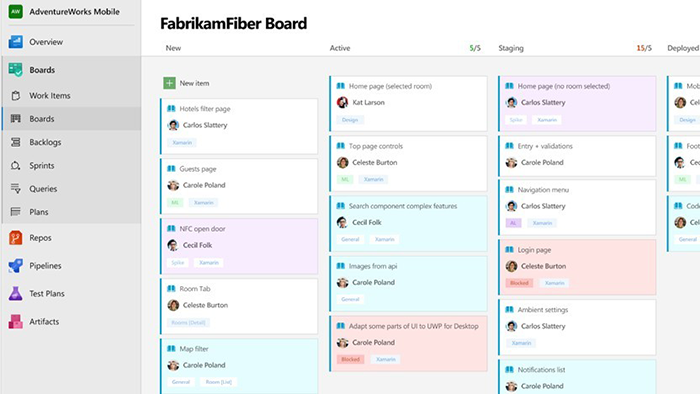
Pricing: Free, advanced features starting from $6/user/month
Rating on Capterra: 4.4/5
Azure DevOps is a comprehensive set of development and project management tools provided by Microsoft. It offers a wide range of capabilities to support software development, including version control, project management, build automation, continuous integration/continuous delivery (CI/CD), testing, and deployment.
Azure DevOps is widely used by Agile teams. It offers a flexible tracking system that allows teams to create and manage user stories, tasks, bugs, and other work items. You can customize boards, create swimlanes, move items across columns, and set up rules to automate workflows. It also offers built-in reporting and analytics features, offering insights into team performance, sprint progress, and code quality metrics.
What users say about Azure DevOps:
"The only Agile tool to use. Azure DevOps is the absolute leader for Agile deployment. Agile is woven all throughout the DNA of the system and lends itself perfectly to the process and practices that underpin Agile. The best features by far are the Backlog and Decomposing of tasks. This is beneficial to any working group, IT or otherwise. The other great features are the reporting and burndown chart which provide real-time information for team progress that can be broken down further into its component parts."
4. Asana
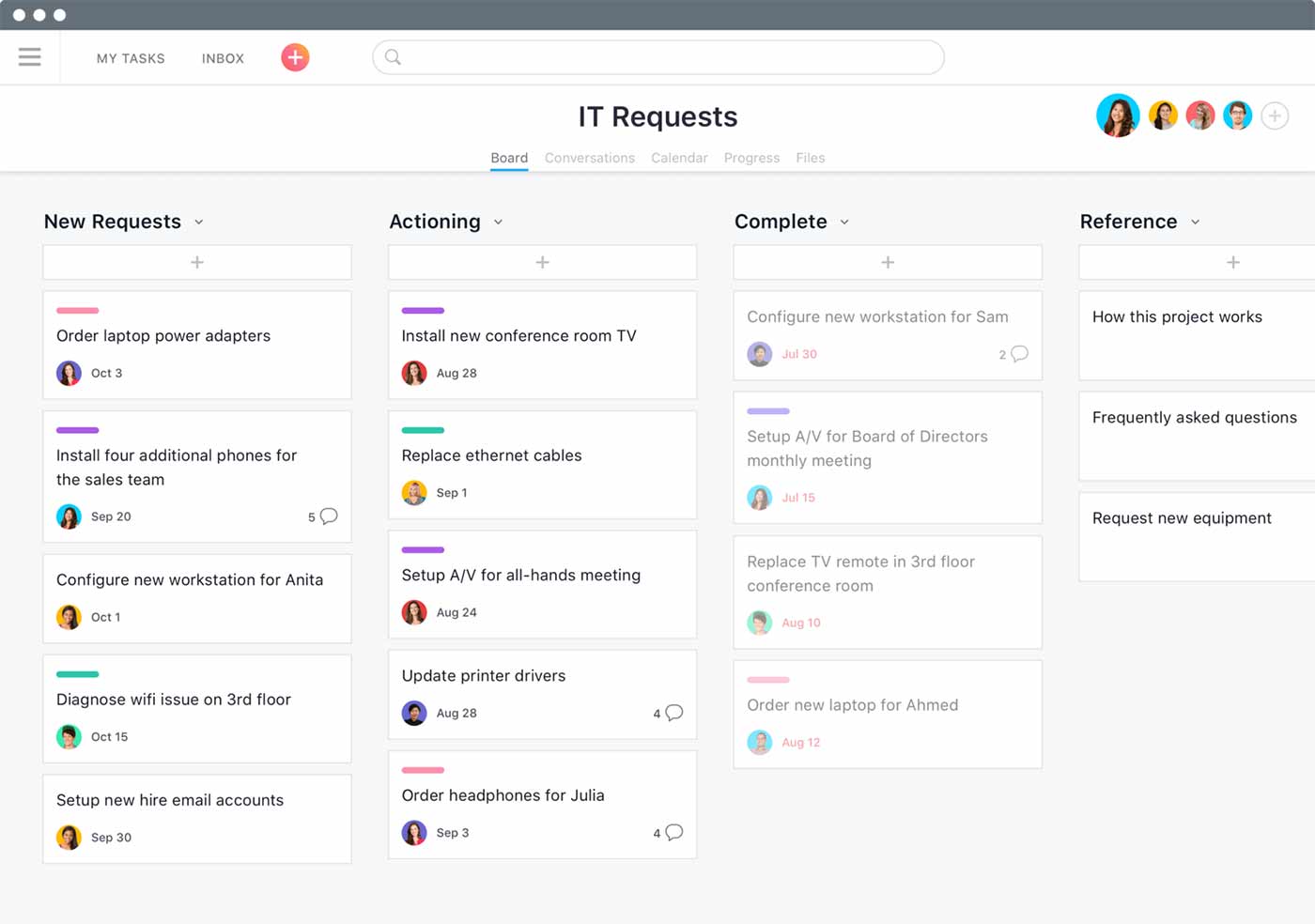
Pricing: Free, advanced features starting from $10.99/user/month
Rating on Capterra: 4.5/5
Asana is a general-purpose tool, but it can be easily adapted for Agile project management. Asana provides a visual and dynamic interface that enables teams to organize and track their work in a manner that aligns with Agile frameworks. Teams can create boards, lists, and cards to represent tasks, user stories, or backlog items.
Asana's ability to create subtasks and manage task dependencies provides granular control over work breakdown. Asana also provides visual dashboards, progress charts, and reporting features that allow teams to track project progress, monitor timelines, and identify potential bottlenecks.
Asana is nearly as flexible as Jira but comes with a much more elegant and user-friendly interface. It charges a higher monthly fee than most other project management tools on this list and can be prohibitively expensive for some organizations. Nonetheless, many teams find that it's more than worth the investment.
Looking for more tools similar to Asana? Check out this list of Asana alternatives.
What users say about Asana:
"Best way to coordinate work between Agile teams. Asana is one of those tools you can't live without when you add it to your workflow. It offers great capabilities to coordinate people and leave all decisions made about a topic in the same place."
5. Taiga
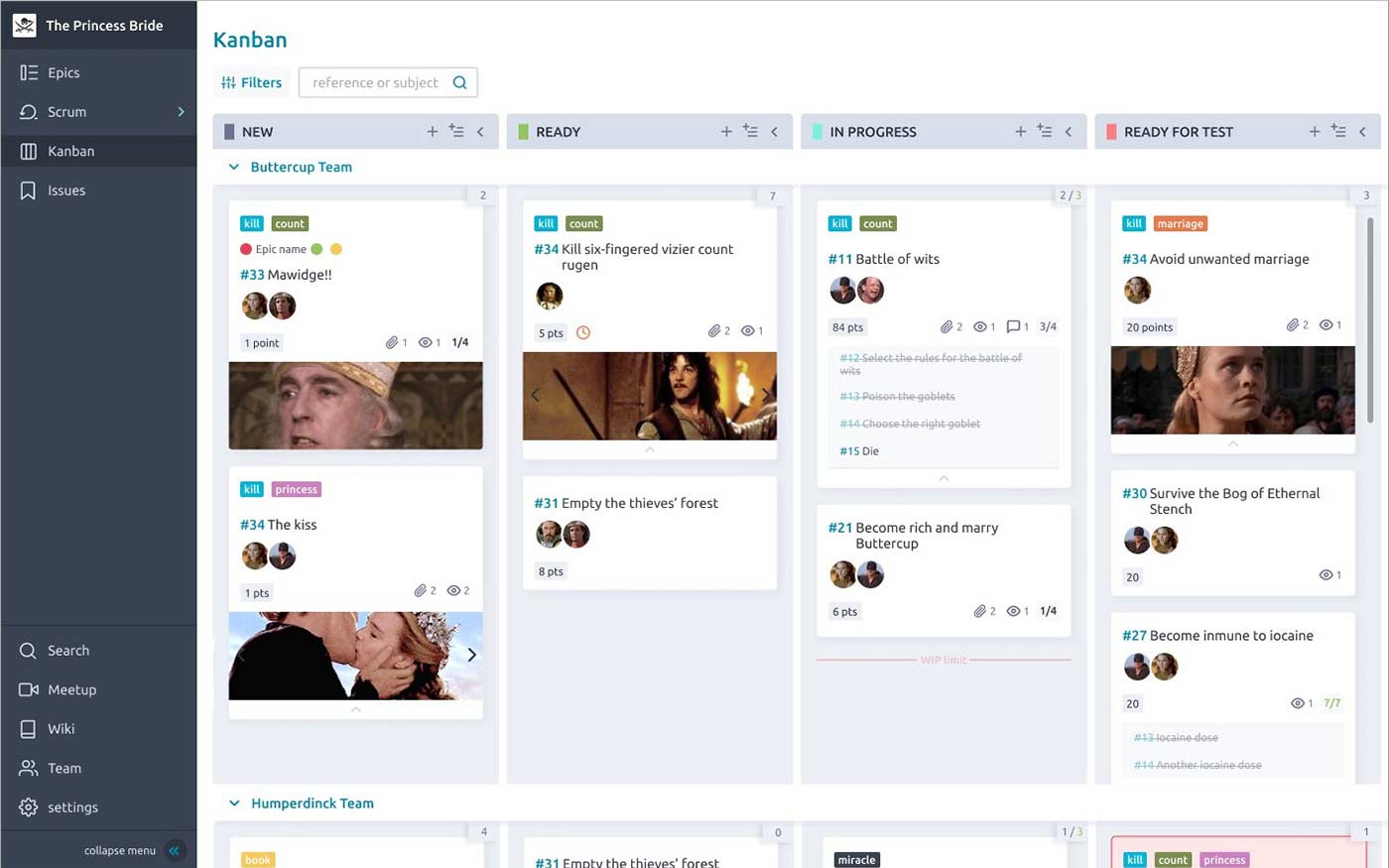
Pricing: Free, advanced features starting from $5/user/month
Rating on Capterra: 4.4/5
Taiga is a free open-source project management tool that is tailored to Agile software development teams. It's available in both cloud-based and self-hosted versions and offers a wide range of specialized features such as customizable Kanban boards, performance dashboards, WIP limits, and burndown charts.
Taiga allows organizations to host their own instance, giving them full control over their data and ensuring data privacy. Being an open-source project, it also benefits from a vibrant community of developers, who actively support the tool and contribute to its development.
What users say about Taiga:
"Taiga is a good IT project management software. Open source and works nicely! Perfect for personal or small projects, if you don't have a very big budget. Includes all of the expected features like team management, support for epics, issues, sprints, and a backlog. You can define custom ticket/issue statuses. Also includes a built-in Kaban board."
6. Basecamp
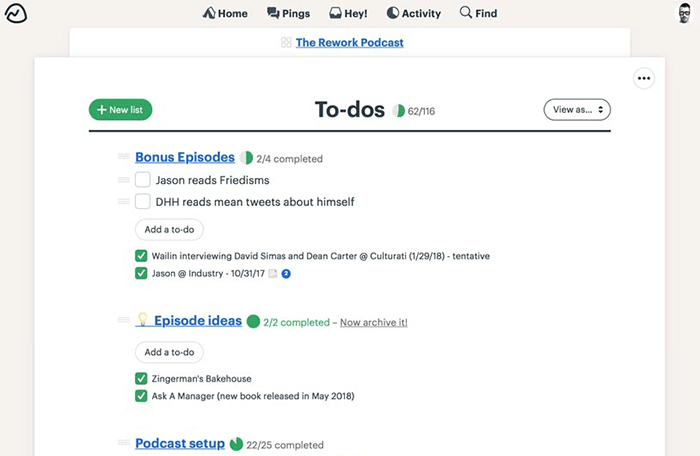
Pricing: $15/user/month or $299/month for unlimited users
Rating on Capterra: 4.3/5
A self-described "all-in-one toolkit for working remotely", Basecamp brings together to-do lists, calendars, instant messaging, document and file management, and more.
Basecamp wasn't originally designed to serve as an Agile project management tool. But with the launch of Basecamp 4 in 2023 and the introduction of a wide range of new features, it has earned a spot on this list.
Basecamp is also one of the rare tools that charge a flat monthly fee (in addition to the option of paying a per-user fee). That makes it a much more scalable option for large and growing teams.
Looking for more tools similar to Basecamp? Check out this list of Basecamp competitors.
What users say about Basecamp:
"I felt Basecamp was easier and cleaner for me as a project and account manager for our select clients, working on accounts with a sort of "Agile within Waterfall" hybrid approach to how we work...so Basecamp just fit much better, and I'm a big fan of 37signals' core philosophy too in building businesses, so there was really no competition in the end."
7. Wrike
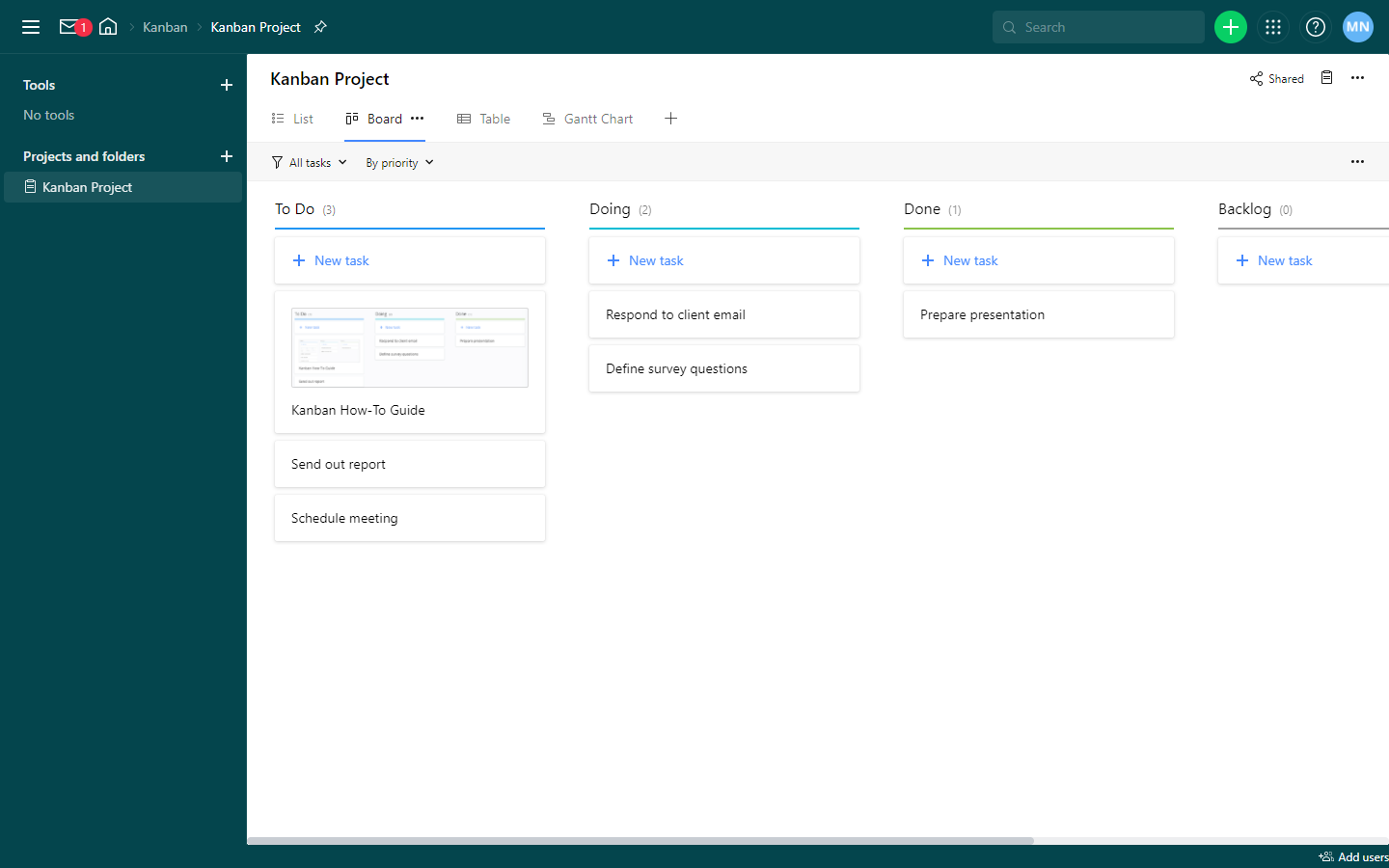
Pricing: Free, advanced features starting from $9.80/user/month
Rating on Capterra: 4.3/5
Wrike is a powerful Agile project management tool best suited for large companies and enterprises. Its interface is dense and packed with a variety of features, menus, and dashboards. Nearly everything can be customized and tailored to your team's unique workflow.
The capabilities of Wrike surpass many tools on this list and include advanced analytics, time-tracking, work requests, task dependencies, and more. All that inevitably comes with a steep learning curve. The app is not very user-friendly, especially for beginners, so be prepared to invest enough time in training your team to use it.
Looking for more tools similar to Wrike? Check out this list of Wrike alternatives.
What users say about Wrike:
"Whether you use Agile, Waterfall, or any other methodology, Wrike can be customized to fit your needs. The platform allows you to create tasks, set priorities, and assign them to team members, making it easy to keep everyone on the same page."
8. Redmine
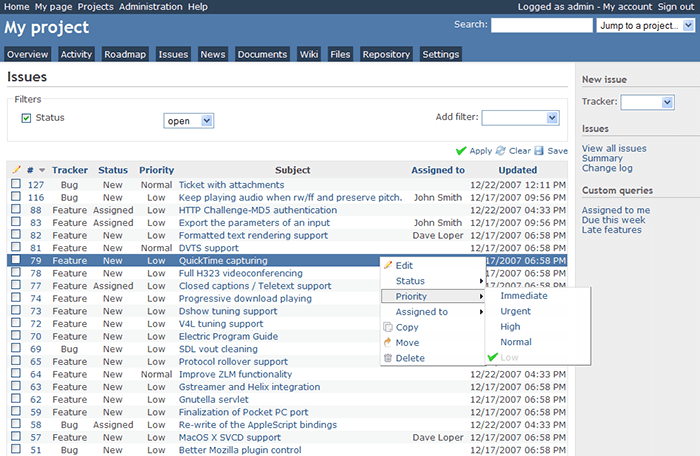
Pricing: Free
Rating on Capterra: 4.1/5
Redmine is an open-source project management tool. It's written in Ruby on Rails and offers flexibility and customization options to meet the needs of various project management methodologies, including Agile. It may not be as visually appealing and intuitive as some of the other proprietary tools in this article, but it has all the functionality a team might need to manage Agile projects.
While Redmine itself does not enforce specific Agile practices, it provides features and plugins that can be utilized to implement Agile workflows. For example, with plugins like Agile plugin or Redmine Backlogs, you can create visual boards and swimlanes to manage and prioritize tasks using the Kanban method.
Note that the initial installation process can be highly challenging for anyone with no technical background.
What users say about Redmine:
"Our marketing teams felt overwhelmed by the complexity if Jira. We just couldn't make it work. Redmine, however, with a set of Agile plugins, allowed us to have a true kanban board and implement really robust scrum workflows using Redmine. It was a tremendous experience and really helps us tackle our weekly tasks."
Other great Agile project management software
There are many other great Agile project management tools that deserve an honorable mention, including Kanbanize, LiquidPlanner, and more. This list is by no means exhaustive – the market for Agile tools is remarkably crowded and competitive.
Agile methodologies emphasize adaptability, iterative development, and effective communication. When selecting a tool, prioritize features that facilitate these principles. Look for tools that offer flexible workflows, seamless collaboration features, and visualizations of project progress.
Remember to also consider your team's size, project complexity, and budget when making a decision. Engage your team in the evaluation process to gather their insights and preferences.
Ready to get started?
